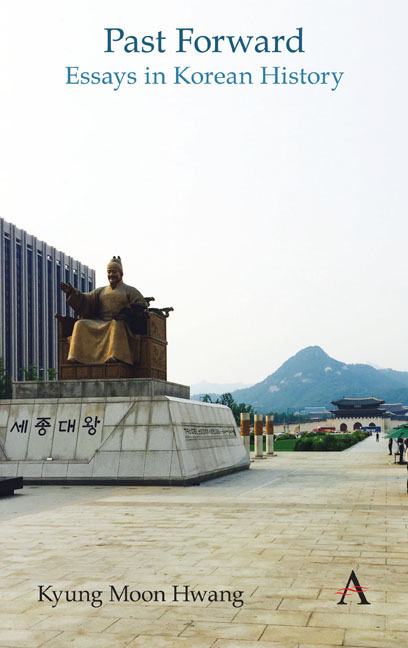Book contents
- Frontmatter
- Contents
- List of Figures
- Foreword
- Chronologies of Korean History
- Themes
- Acknowledgments
- Note on Romanization and Spelling
- Part I Circulating History
- Part II Durable Traditions
- Part III Ancient Remains
- Part IV Dynastic Depths
- Part V Modern Origins
- Part VI Challenges of Nationhood
- Part VII History Makers
- Part VIII External Presences
- Part IX Trials of Modernization
- Part X Gripped by the Past
- 70 Natural Disasters and the False Wisdom of the Past
- 71 Royal Dangers
- 72 North Korea's Alternative History
- 73 Origins of Korea's Political Corruption
- 74 Anti-Communism's Powerful Hold
- 75 Fraudulent Captains of the Sewol Ferry Disaster
- 76 Overcoming Past Hierarchies
- 77 Gripped by the Authoritarian Mindset
- 78 Ways of Living History
- Index
75 - Fraudulent Captains of the Sewol Ferry Disaster
from Part X - Gripped by the Past
- Frontmatter
- Contents
- List of Figures
- Foreword
- Chronologies of Korean History
- Themes
- Acknowledgments
- Note on Romanization and Spelling
- Part I Circulating History
- Part II Durable Traditions
- Part III Ancient Remains
- Part IV Dynastic Depths
- Part V Modern Origins
- Part VI Challenges of Nationhood
- Part VII History Makers
- Part VIII External Presences
- Part IX Trials of Modernization
- Part X Gripped by the Past
- 70 Natural Disasters and the False Wisdom of the Past
- 71 Royal Dangers
- 72 North Korea's Alternative History
- 73 Origins of Korea's Political Corruption
- 74 Anti-Communism's Powerful Hold
- 75 Fraudulent Captains of the Sewol Ferry Disaster
- 76 Overcoming Past Hierarchies
- 77 Gripped by the Authoritarian Mindset
- 78 Ways of Living History
- Index
Summary
Mid-April has now become a time to pause and reflect on the saddest event in South Korea in a generation, the sinking of the Sewol ferry on April 16, 2014: what happened, why it happened, and the meaning of it all for the country's identity and future. For like all such defining historical moments, the impact of this disaster extends far into both the future and the past. Not only did the country forever change with the harrowing deaths of over 300 very innocent lives, but the way one looks back at South Korea's history has followed suit. In remembering this awful event, then, let us reconsider its significance in a broader historical framework.
First of all, investigations into the tragedy have revealed that this was not an “accident” but almost an inevitability, an accident waiting to happen. The many direct factors, both large and small, all resulted from choices made by actors in the government, the shipping industry, and the ferry company to violate laws, regulations and common decency. These actions in turn were driven by a larger culture of greed, abuse, negligence, and the blind pursuit of individual interests over that of the community. In moments of painful reflection, however, South Koreans came to realize that these more indirect factors implicated their society as a whole, which raised troubling issues about their collective identity and history.
What, then, were the origins and turning points of the larger context that converged on that fateful day? What were, in sum, the structural causes of this tragedy? This is the question that historians will be asking ten, twenty and fifty years from now. But we can anticipate some of those findings already.
Despite the reprehensible, unfathomable actions of the ship's captain that day, the decisions that led to putting hundreds of lives in the hands of such an unqualified person were just as unforgivable. This leads us to the ferry company's owners and managers, but also to the bureaucrats who failed to enforce safety rules regarding personnel, the seaworthiness of the ship, and the amount of cargo it could carry. Such were the ingredients to a toxic brew of incompetence, sloth and corruption.
- Type
- Chapter
- Information
- Past ForwardEssays in Korean History, pp. 217 - 218Publisher: Anthem PressPrint publication year: 2019



